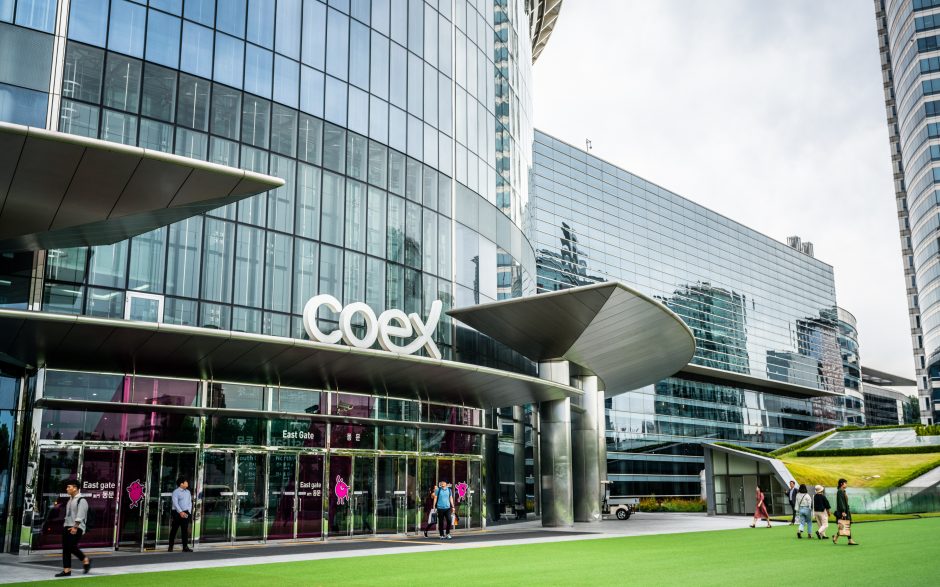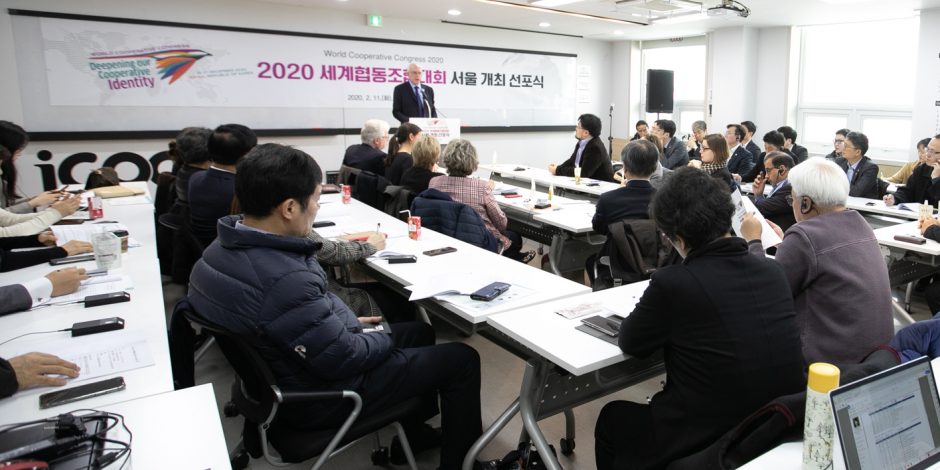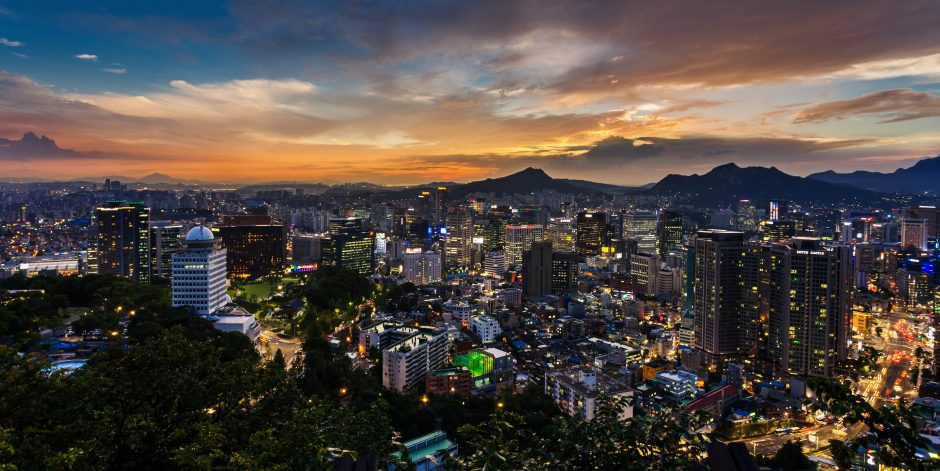On 11-17 December 2020, 2,000 co-operators will gather in Seoul, the Republic of Korea, for the 33rd World Cooperative Congress.
Preparations officially kicked-off this week with a launch event in the city, featuring representatives from all International Cooperative Alliance (ICA) member co-ops in Korea, officials from local governments and several civil society organisations.
The main theme of the 2020 Congress, which will be hosted at the COEX complex in the heart of the city, will be ‘Deepening our Co-operative Identity’. According to the ICA, it will be “an opportunity to celebrate the movement’s history while launching a debate to generate a more multi-faceted understanding of the role of co-operative identity in co-operatives”.
World Co-operative Congresses are large gatherings of ICA members as well as co-operators in general. They are convened only on very special occasions, such as for the approval of the Statement on the Co-operative Identity (31st Congress, 1995, Manchester) or the UN International Year of Co-operatives (32nd Congress, 2012, Manchester).
The 2020 event aims to be useful for co-operatives’ positioning at a national and international level, and will also be an opportunity for co-ops to learn how to better use the co-operative identity to their advantage. A number of papers and studies will be prepared and presented, while prior to the Congress, Seoul will host an International Co-operative Research Conference (10-12 December) and an International Co-operative Law Forum (12-13 December), which will discuss themes related to the Congress.

2020 marks both the 125th anniversary of the ICA, which was founded in 1985 at its 1st Congress in London (UK), and the 25th anniversary of the adoption of the ICA Statement on the Cooperative Identity. The Statement sets out the definition of a co-operative as a special form of organisation, the values of co-operatives, and the co-op principles that direct their behavior and operation.
Martin Lowery, the ICA Director who chairs the Congress Task Force and presides over the ICA Board Committee on Cooperative Identity, spoke at the launch event about the importance of co-operative values and how they form the “essence of the co-operative difference”.
Mr Lowery also shared the three main thematic pillars of the Congress: Deeping our Cooperative Identity; Innovation and Entrepreneurship; and Cooperatives’ Global Responsibility in the context of the Sustainable Development Goals (SDGs). During the launch event trip, he conducted meetings with the organisers, ICA member organisations and the Seoul Metropolitan government.

Also in attendance was Balu Iyer, regional director for the International Cooperative Alliance Asia-Pacific (ICAAP), and ICA director general, Bruno Roelants, who recalled the meeting between the Seoul city Mayor and ICA President at an event on Social Economy in Bilbao, Spain, where the idea of having the World Cooperative Congress in Seoul emerged.
“There is a big expectation from the international co-operative movement to come to Korea and learn about your experience,” said Mr Roelants. This is only the second time an ICA Congress has been organised outside Europe; the first was the 30th Congress in Tokyo in 1992.
Co-ops in South Korea
According to ICAAP, co-operatives play a vital role in driving community-based initiatives to strengthen the rural and urban economy in Korea. The country has 5,100 active co-operatives with 313,000 members and 22,000 employees (2016 figures). Nearly 24% of co-ops operate in wholesale and retail, 14% in education, 10% in agriculture in forestry, 9% in manufacturing, 9% in arts and sports, 5% in health and social welfare, and the remainder in other sectors. The average turnover is just under US$250,000 (£193,000).
Korea has two different legal frameworks for co-ops: the Special Law Regime (eight laws which are closely related to specific economic sectors and enterprise types) and the Framework Act on Co-operatives (a general co-op law formulated in 2012 to provide legal recognition to self-help organisations excluded from the jurisdiction of existing eight special cooperative laws).

The government and established co-ops both actively promote the model across the world by showcasing successful co-operatives and by supporting sustainable co-op development, taking into account the Sustainable Development Goals (SDGs). Two sectors seeing recent growth are school co-operatives (where students set up their own enterprises within a school) and freelance co-operatives (being established by lecturers, coaches, consultants, IT developers, scientists, researchers, civic landscapers, artists, craftsmen, theater freelancers, reporters, storytellers, photo reporters, movie staff, and writers).
Excitement at kickoff meeting of @icacoop 2020 Congress Task Force members with ICA Korea members, representatives from Social Economy, government and press to discuss progress of work, agree on terms of engagement, plans nexts steps in preparation. @ICAAPAC pic.twitter.com/EjwNuoeVTA
— Balu Iyer (@bgiyer) February 11, 2020
The country has a long-standing relationship with the ICA; Korean co-ops hosted the ICA-AP Regional Assembly in 1998 and the ICA Global Assembly in 2001. Korea is the Secretariat of the International Co-operative Agricultural Organization (ICAO) and the International Cooperative Fisheries Organization (ICFO) – and Mr Lee Jong-Koo, the former President of the Korean National Federation of Fisheries Cooperatives was the Rochdale Pioneers Award winner in 2011. The ICA has seven members from Korea; the first to affiliate was the National Agricultural Cooperative Federation (NACF), in 1963.
For more information on co-ops in South Korea, see the ICAAP factsheet here.